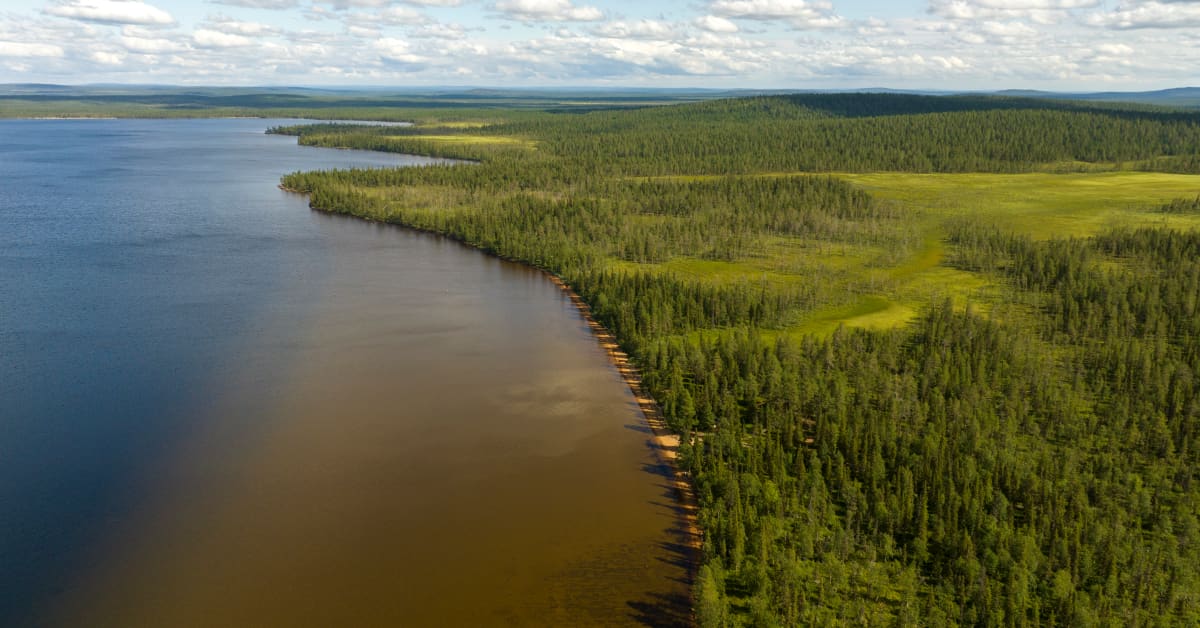Hikers visiting the Pallas-Yllästunturi National Park may notice that the area has hardly any rubbish bins. The move is part of an effort to promote litter-free hiking, according to Metsähallitus Outdoor Recreation and Visitor Manager Pekka Sulkava.
Park management removed the bins previously located in rest areas as well as shelters and lodges along the Pallas-Hetta route last winter. The goal is for all bins to be removed by next year.
According to Sulkava, the practice of hiking without leaving litter behind is steadily gaining popularity in Finland.
“Nature centres have also promoted the idea of litter-free hiking and sold plastic bags for carrying litter so that they don’t get scattered in people’s rucksacks. People have been buying the bags and at the moment it seems that the amount of rubbish at the park’s break areas has clearly decreased,” Sulkava said, adding that he has noticed a change in hikers’ attitudes towards littering in the past decades.
Finland’s natural resource management firm Metsähallitus says that the move has been welcomed by parkgoers.
“Litter-free hiking has become the norm, that everything brought gets taken away and that nothing is left here,” Tuuli-Anna Tuohimaa a hiker from the city of Pudasjärvi, near Oulu, told Yle.
“And you don’t really see any rubbish along the trails, seems like it has become a given,” co-hiker Jaakko Matero added.
Park rangers have also been installing more informational signs within parks and transitioning from traditional outdoor restrooms to ones that are more cost-effective to purchase and simpler to upkeep. All toilets have also been made unisex, meaning that they are no longer separated by gender.
“The unisex model means that the toilets get used more evenly, which reduces the need for maintenance and costs,” Sulkava noted, adding that “overall, the feedback has really improved this year.”
The number of visits to Finland’s national parks has levelled off from the record set in 2021. Some 595,000 people visited the Pallas-Yllästunturi National Park in 2022, down from nearly 700,000 in 2021.



Litter bins in the middle of a forest still have to be emptied by someone. And while they are there, they can be accessed by wildlife.
The correct solution here really is for the same people that bring the trash, to take it back with them, and discard it elsewhere.
If people won’t do that, then yes, the litter bin is the better option, but if they do, removing them is the better option. Especially if they aren’t even being filled anymore.
This is the locigal next step for an already improving hiking culture.
Japan is very similar but not exclusive to parks, even in the middle of Tokyo. Pretty much EVERYWHERE in Japan expects you to carry your own trash.
The only exception to this really being at restaurant’s, street food markets, and “some” vending machines (which will have recycling for cans/plastic).
And you know what? There’s very little trash on the streets. The dirtiest areas I experienced was Osaka near Amerika-mura (young trendy area) which was mostly just stuck gum, cigarette butts, and in the early AM maybe an empty can of beer.
and if people throw their trash on the ground, they themselves should be removed instead. litterers are literal scum of the earth.
You are totally right and I never wanted to imply that people should be able to take trash into the wildlife. I’m just not sure if it’s the best way to just remove the litter bins. Many people that didn’t get the note will throw their trash into nature because of the lack of a trashcan.
If the trash is already there, it’s too late. There should be a way to enforce that in a way were ignoring or not knowing about the rules will not result in an even worse outcome.
But will that kind of person really carry trash until a resting place, or maybe just dispose of it where they open stuff?
I personally always found trash cans in areas not commly frequented by cars rather odd - I got tought in the 80s and 90s that we are careful how we pack things we take with us when hiking, and take everything back.
It is a conecpt a 3 year old can understand (I see that now with my own kids), so you’d expect an adult not to have a hard time with that.
A lot of adults are just assholes, though.
the bins can be designed to prevent wildlife from accessing them. I guess they don’t have any other facilities nearby that would need maintenance as well. So bring your own water and porta potty as well.
deleted by creator